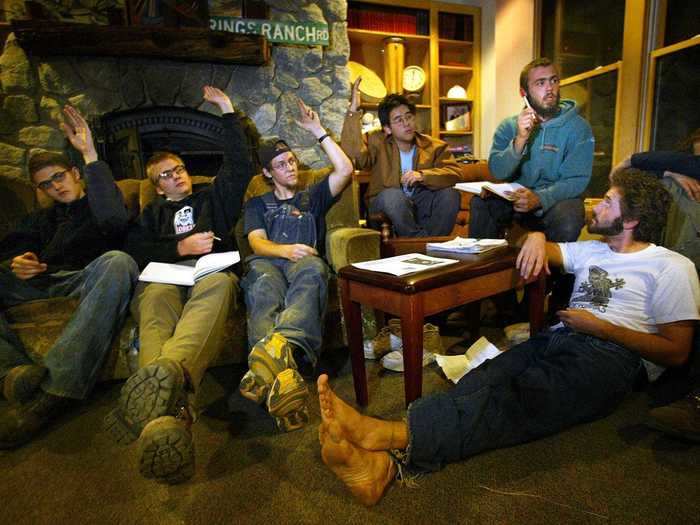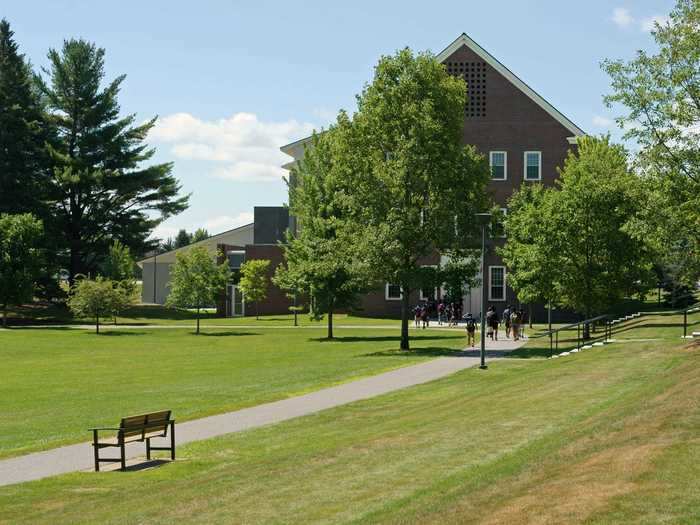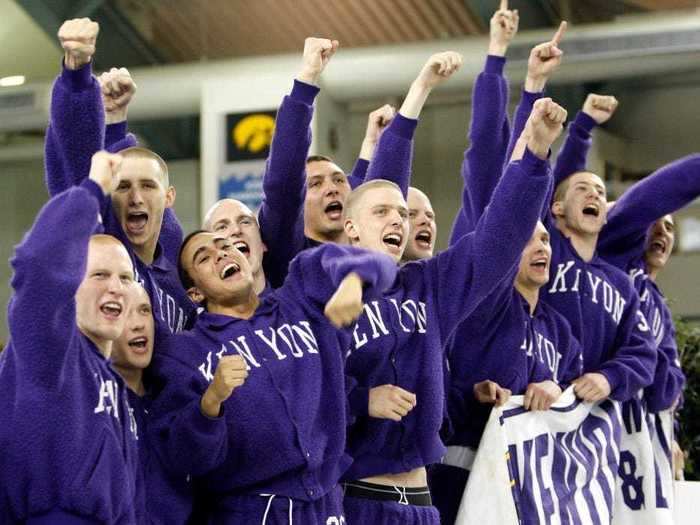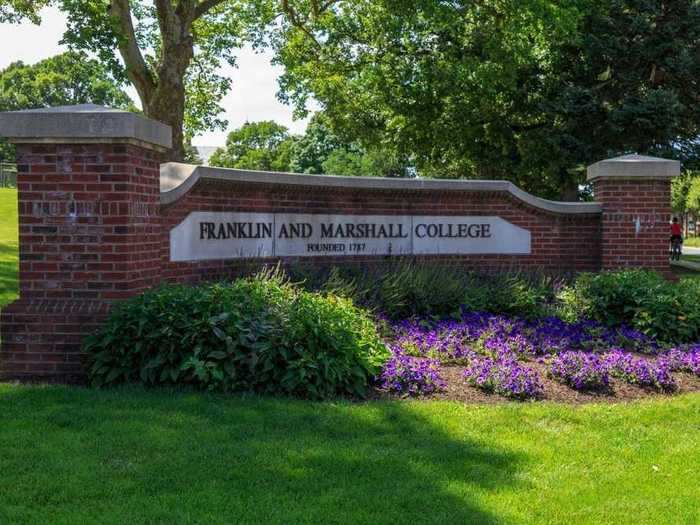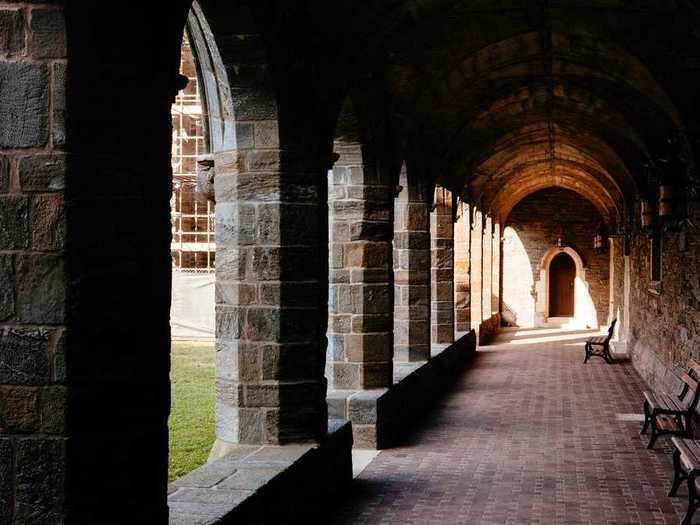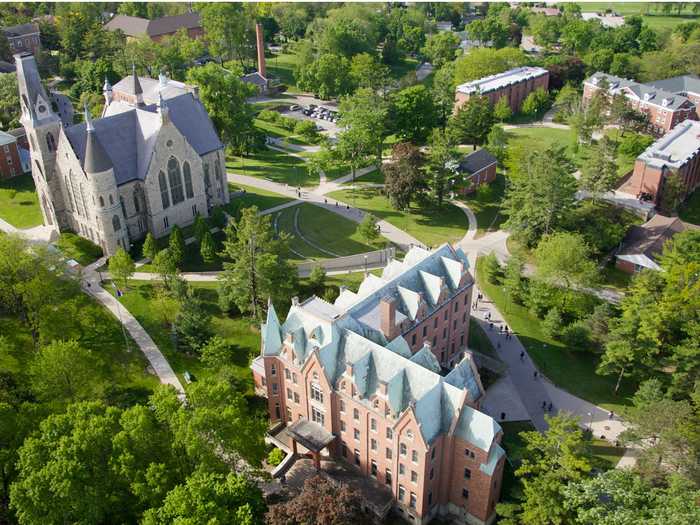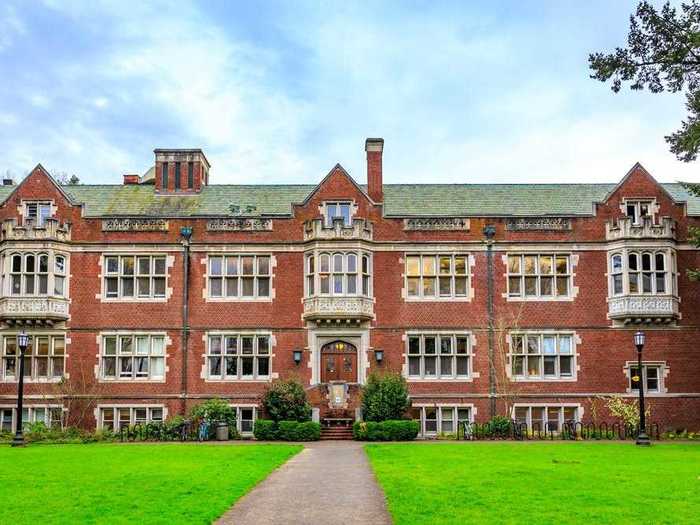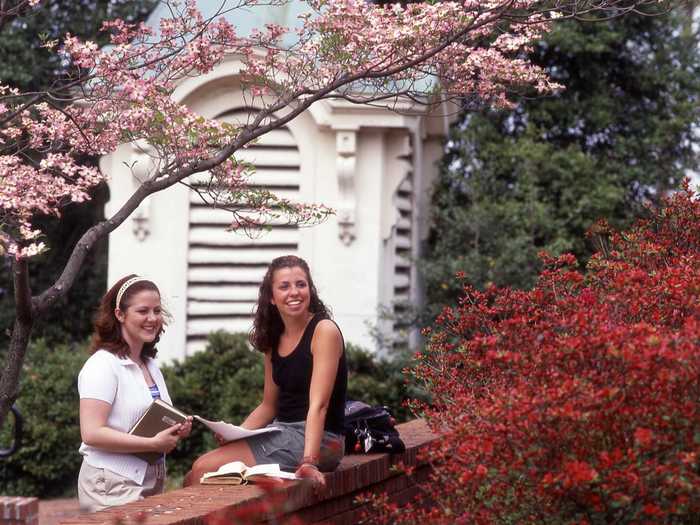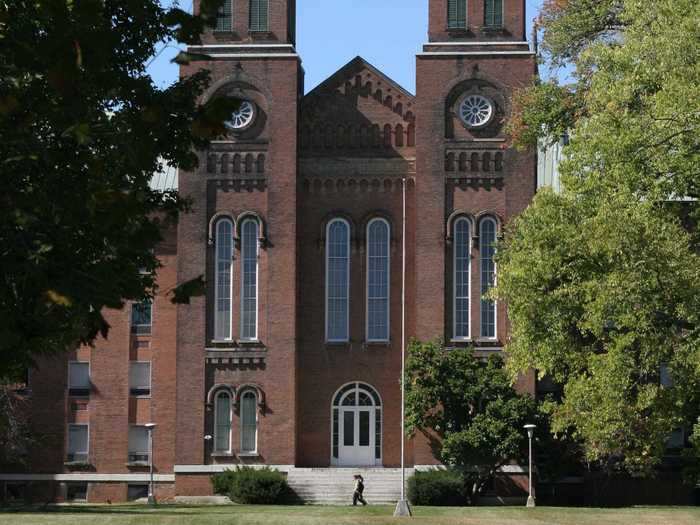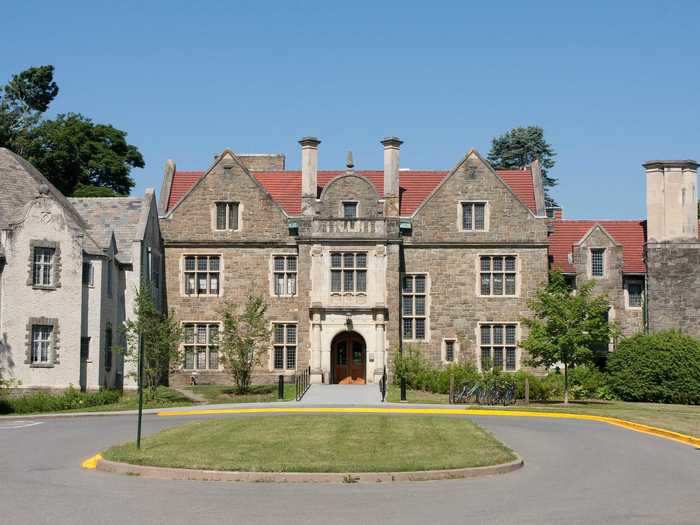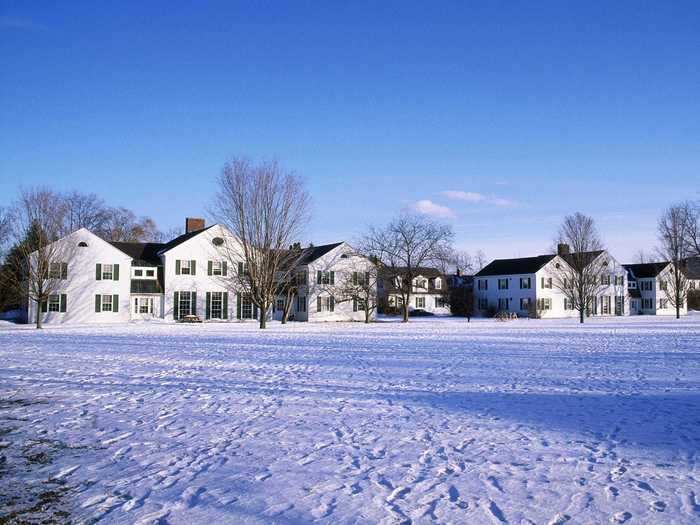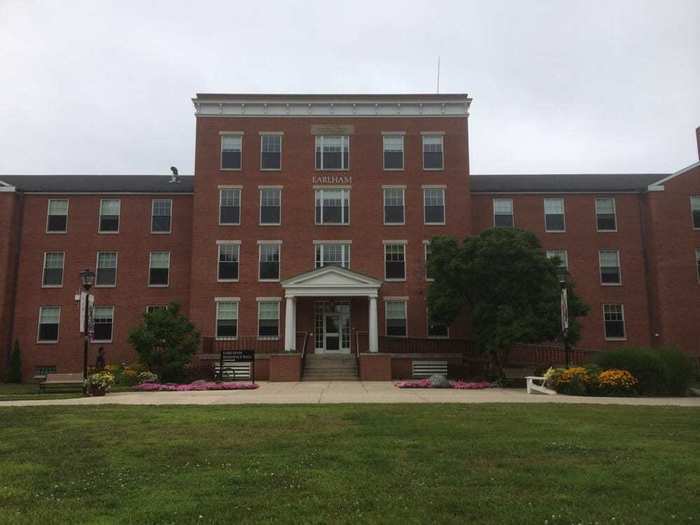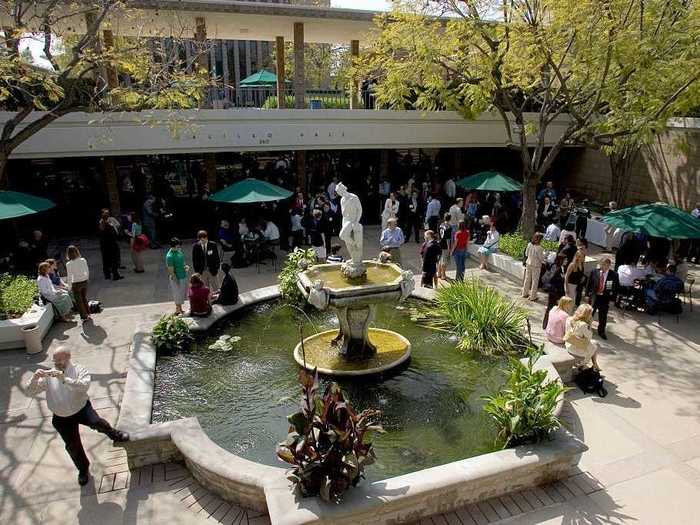Bryn Mawr holds its own Yule Ball, a "Harry Potter"-inspired winter dance.aimintang/Getty Images
- Some colleges and universities in the US offer out-of-the-ordinary academic programs for students.
- Others offer unique locations, like Deep Springs College, where students work and study on a campus in the middle of the California desert.
- Franklin and Marshall College in Pennsylvania has a "Harry Potter"-like housing system for first-year students, while Bryn Mawr College holds its own annual Yule Ball.
TV shows and movies often portray college as a one-size-fits-all experience — but within the US alone, a number of universities offer specialized programs and one-of-a-kind opportunities for students, proving that college can mean something different for just about everyone.
From the free-spirited nature of Deep Springs College, which is located in the middle of the California desert, to the unique grading system of Reed College, in which letter grades practically don't exist, the nation is home to schools with a diverse range of academics and campuses.
Using insights from sources like the Princeton Review and US News' Best Colleges lists, we've rounded up 13 of the most unique colleges around the country that may not have been on your radar.
Deep Springs College is a two-year college that offers full scholarships to its class of 30 students, who live, work, and study in the middle of the desert in California.
Deep Springs College students.
Spencer Weiner/Los Angeles Times/Getty Images
Deep Springs College is unique for a number of reasons. First, it doesn't have more than 30 undergraduate students at any given time, and all students are given a full scholarship. Its campus is not exactly the quintessential college campus with a quad, high-rise dorm buildings, and dining halls, either.
The school is set on a 155-acre campus in the eastern California desert, about 40 miles from the nearest town, which is Bishop, California. The curriculum focuses on academics, self-governance, and labor — students have classes in the morning and, after lunch, they take part in work ranging from cooking to farming and ranching.
Colby College in Waterville, Maine, has unique opportunities for students to take time off to travel or complete research abroad during its January term, called the Jan Plan.
Colby College.
Popova Valeriya/Shutterstock
Colby College's Jan Plan term is described as an exploratory term in January that gives students the freedom to choose from a variety of academic experiences, such as internships, conducting research, or studying abroad.
Students are required to take three Jan Plan terms, but according to the school's site, 90% of students do four Jan Plans.
Kenyon College in Gambier, Ohio, has a 500-acre nature preserve and farm on its hilltop campus.
Kenyon College.
Carlos Gonzalez/NCAA Photos/Getty Images
At Franklin and Marshall College in Lancaster, Pennsylvania, first-year students live in one of five "houses," similar to a "Harry Potter" or Hogwarts-style living situation.
Franklin & Marshall College.
George Sheldon/Shutterstock
Franklin and Marshall College was originally called Franklin College, founded in 1787 by Benjamin Franklin, who donated 200 English pounds to the school.
The school's rich history isn't the only thing that makes it stand out from other universities. At Franklin and Marshall, first-year students are assigned one of five Harry Potter-esque "houses," where they live, have meals, and connect with fellow students and faculty advisers, according to US News.
According to the school's website, "members of each house decide their own government structure, craft a constitution, elect leaders, discuss and plan house-sponsored events, determine how the house's substantial annual budget will be spent, and generally take charge of all the other who, what, when, why and hows of their particular collective on campus."
Another college that prides itself on its Hogwarts-esque learning environment is Bryn Mawr College in Bryn Mawr, Pennsylvania.
Bryn Mawr College.
Zac Endter/Shutterstock
Not only does Bryn Mawr College have an owl as its mascot and gothic-style buildings throughout campus, but the college leans into its Hogwarts-like aesthetic. Each year, Bryn Mawr holds its own Yule Ball, a "Harry Potter"-inspired winter dance with food and dancing. Students are even encouraged to dress in formal attire or come dressed as "Harry Potter" characters.
The school has yet to announce how the coronavirus pandemic may affect the dance, but academics and other parts of student life are going ahead with added precautions.
At Cornell College in Mount Vernon, Iowa, students follow the school's "one course at a time" philosophy, which means they only take one subject during each 3.5-week term.
Cornell College.
Courtesy of Cornell College
In addition to its unique "one course at a time" curriculum, Cornell College (not to be confused with Cornell University) also equips first-year students with a "success team" of faculty and upperclassmen who closely mentor students during their first semester.
Reed College in Portland, Oregon, evaluates students on a pass- or no-pass scale, so students don't have traditional course grades.
Reed College.
Png Studio Photography/Shutterstock
At Berea College in Kentucky, no student pays tuition. The work-study college offers students an up to $100,000 scholarship over four years, covering the cost of tuition.
Berea College in Berea, Kentucky.
Courtesy of Berea College
At Antioch College in Yellow Springs, Ohio, students complete co-ops and spend up to a third of their coursework doing community service, internships, or full-time work.
Antioch Hall, the administration building at Antioch College in Yellow Springs, Ohio.
Skip Peterson/AP
Bard College in Annandale-on-Hudson, New York, is known for its specialized living communities and highly involved senior projects.
Bard College.
nancykennedy/Getty Images
Named no. 4 on US News' Most Innovative Schools list, Bard College in upstate New York is known for its intellectual environment and a senior project that all students complete.
Some houses and residence halls on Bard College's campus are themed around being "alcohol-free," "quiet," and "wellness" hubs, US News reports. Additionally, a popular volunteer opportunity at Bard is a program that sends students to jails throughout New York to tutor inmates, according to US News. Though students no longer physically visit prisons due to the coronavirus pandemic, the Bard Prison Initiative has continued coursework virtually.
Bennington College in Bennington, Vermont, is the only college in the US that requires students to have an annual internship.
Bennington College.
Barry Winiker/Getty Images
Bennington College is unique because undergraduate students work with graduate-style advisers to create a specialized academic plan. Also, according to US News, Bennington College students work with an organization or institution of their choice for two months every winter as part of the college's mandatory annual internship program — its website claims that it's "the only college in the country to require an annual internship since its founding."
Famous alumni of Bennington include "Game of Thrones" actor Peter Dinklage, as well as director and actor Alan Arkin.
Earlham College in Richmond, Indiana, funds an internship, research program, or community-based project for each student.
Earlham College.
Katharine S./Yelp
Earlham College offers what it calls the EPIC Advantage, a program that funds experiences like internships, research opportunities, and community service projects for students, according to the Princeton Review.
Harvey Mudd College in Claremont, California, facilitates a unique student entrepreneurial program and focuses on undergraduate degrees in science, math, and engineering.
Harvey Mudd College.
Ted Soqui/Corbis/Getty Images
Harvey Mudd College, part of the Claremont University Consortium, a group of California colleges, is known for its focus on science, math, and engineering undergraduate studies.
A one-of-a-kind feature that Harvey Mudd students have access to is its Clinic Program, where students work on projects sponsored by entrepreneurs, companies, and national laboratories, according to US News.
Though Harvey Mudd has transitioned to remote learning for the fall 2020 semester, students can expect to take part in the school's unique programs in person if the spring semester resumes in the classroom.

